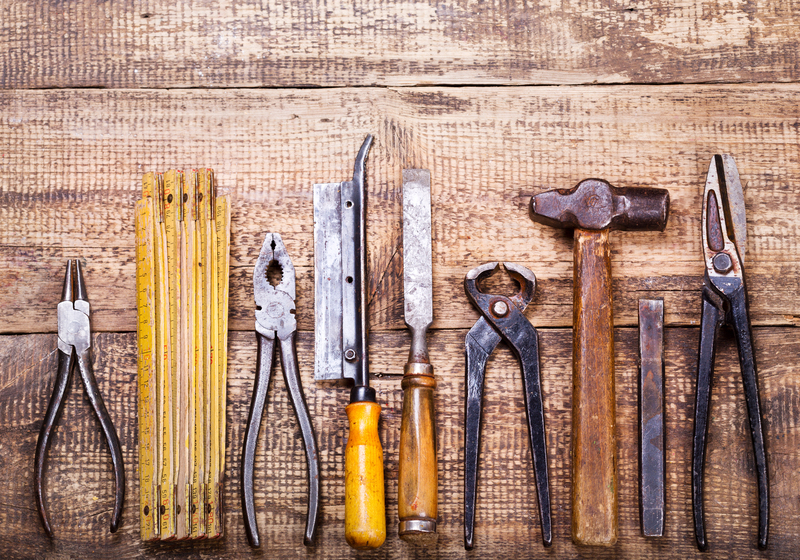Expert Advice on Saving Money With Bulky Waste Item Disposal
Are you looking for smart and affordable solutions to dispose of large, cumbersome waste items? Whether you're decluttering your home, renovating, or moving, figuring out cost-effective ways to get rid of bulky waste can be challenging. In this comprehensive guide, we'll provide expert advice, proven strategies, and practical tips to help you save money on bulky waste item disposal.

Understanding Bulky Waste Item Disposal
Bulky waste disposal refers to the removal of large items that cannot be thrown out with regular household garbage. These commonly include:
- Old furniture such as sofas, beds, wardrobes, and tables
- Appliances including fridges, washing machines, ovens, and dishwashers
- Mattresses and box springs
- Large electronic items
- Garden waste like fencing, sheds, or tree branches
- Renovation debris such as doors, windows, and bathtubs
These items are often heavy, awkward, and require special handling or disposal methods. That's why disposing of bulky waste items efficiently, without breaking the bank, requires some planning and awareness of available options.
Why Is Bulky Waste Disposal Expensive?
Bulky item disposal fees vary depending on your location, the items in question, and the disposal method. Here are some reasons why it can be costly:
- Municipal waste services often charge extra for large items
- Transportation requires bigger vehicles and additional labor
- Landfill fees can be high for certain types of materials
- Environmental regulations may require specialized processing
*However, there are multiple ways to reduce these costs significantly. Let's dive into actionable money-saving tips for bulky waste removal straight from the experts.*
1. Plan Ahead and Declutter Strategically
Planning your large waste disposal is the first and most important step. Rushed decisions often lead to overpaying for last-minute removals or resorting to expensive services.
How to Declutter in a Cost-Efficient Way:
- Sort items: Divide everything into piles: keep, sell, donate, recycle, and dispose.
- Sell valuable items: Use platforms like eBay, Facebook Marketplace, or Craigslist to make some money back.
- Bundle items: Grouping items can help you get a better deal from disposal companies or local authorities offering bulk pickups.
- Ask neighbors: Combining your bulky waste with others nearby can help you split the removal fees.
A strategic, pre-planned approach ensures minimal waste, maximum returns, and fewer trips - all resulting in cheaper bulky waste item disposal.
2. Leverage Council and Municipal Services
Many local councils and municipal authorities provide bulky waste collection services--some even offer free or discounted pickups on certain days (usually annually or biannually). The availability, frequency, and cost of these services vary by region.
How to Take Advantage of Local Services:
- Check your council website to find out about scheduled bulk pickup days, fees, and the rules for what they accept.
- Book early: Spots fill up quickly, especially around moving seasons or public holidays.
- Strictly follow guidelines: Avoid fines or non-collection by following size, weight, and material restrictions.
- Use permitted drop-off sites: Some councils provide free access to recycling centers for residents.
If your council charges a fee, it's often still cheaper than hiring private services. Always compare costs before booking bulky item collections.
3. Reuse, Donate, and Repurpose Bulky Items
One person's trash is another's treasure! Before paying to dispose of furniture or appliances, consider these alternatives:
Ways to Save Money by Reusing or Donating:
- List items on freecycle websites (such as Freecycle.org or local Facebook groups). People will often pick them up for free.
- Donate usable items to charities or thrift shops (e.g., Goodwill, Habitat for Humanity, Salvation Army).
- Contact refugee or homeless shelters that may need household furnishings.
- Upcycle or repurpose. Old wood furniture or appliances can be transformed into creative DIY projects.
These options not only lower disposal costs but also contribute to sustainability and help those in need.
4. Know What You Can Recycle - And Where
Proper recycling isn't just environmentally friendly; it can also be a key to cutting the costs of bulky waste item removal. Many bulky items (such as metal appliances, mattresses, and electronics) can be recycled either via municipal centers or specialist services.
Tips for Recycling Bulky Waste Efficiently:
- Scrap metal yards: They may pay you for old appliances, metal bed frames, and other metallic items.
- Mattress recycling: Some areas have services dedicated to recycling mattresses and box springs, often at a lower price than landfill disposal.
- Electronic waste (e-waste): Drop off TVs, computers, and other electronics at authorized recycling points. Sometimes retailers offer take-back programs.
- Construction recycling: Leftover wood, bathtubs, and tiles can often be taken to construction recycling facilities.
Contact your local waste management authority for guidance on accepted items, drop-off locations, and potential rebates or incentives for recycling.
5. Consider Renting a Skip or Dumpster for Larger Jobs
If you're tackling a major renovation, cleanout, or move, renting a skip bin or dumpster may be the most economical bulk waste removal method.
How to Save Money on Skip Bin Rentals:
- Accurately estimate your waste volume - avoid overpaying for too large a bin, but don't order too small and require extra hauls.
- Shop around: Prices, sizes, and included services vary widely by provider. Always get several quotes.
- Share costs: Coordinate with neighbors or friends who also need bulk disposal, sharing a skip to cut the price.
- Avoid prohibited items: Throwing banned materials in may incur fines or surcharges.
For periodic declutters, skip hire is often the best-value option for significant volumes of bulky waste.
6. Use "Man & Van" or Junk Removal Services
Professional junk removal companies remove and haul away bulky items for you. This is convenient and quick--especially when you cannot move heavy objects yourself.
How to Get Best Value from Junk Removal Services:
- Compare several company quotes: Base your comparison on volume, service level, and reviews.
- Opt for curbside pickup: You'll save money if you can move items outside yourself.
- Book during off-peak times: Avoid weekends and end-of-month when rates may be higher.
- Clarify what's included: Dismantling, labor, recycling fees? Get it in writing.
Important: Only use fully licensed and insured operators for bulky waste disposal to avoid potential fly-tipping prosecutions or environmental penalties.
7. DIY Bulky Waste Removal - Is It Worth It?
If you're willing and able, hauling bulky waste to your local landfill or recycling center yourself can be the cheapest option.
- Check your vehicle: Make sure it can safely handle large or heavy items.
- Factor in hidden costs: Fuel, time, possible vehicle damage, and disposal fees.
- Ask friends for help: Avoid potential injury by getting assistance for lifting and carrying.
- Know the rules: Facilities may require proof of residency and have restrictions on certain items.
DIY disposal is often best for people dealing with one-off large items or those already making trips to the recycling center.
8. Avoid Hidden Costs and Common Pitfalls
Even with the best intentions, disposing of bulky items can incur unexpected costs. Here's how to avoid them:
- Read the fine print: Some services charge extra for stairs, disassembly, or specific item types (like fridges).
- Pre-clearance photos: Get dashboard photos or weigh-ins if charged by load weight or volume.
- Check for duty of care: You must ensure your waste is processed legally; keep receipts/proof of lawful disposal.
- Avoid fly-tippers: Never use unregistered waste carriers offering "cash deals" - illegal dumping can result in fines for you as the waste owner.

Frequently Asked Questions (FAQ) About Cost-Effective Bulky Waste Disposal
- Can I leave bulky items on the curb for my weekly trash pickup?
This depends on your local regulations. Most municipal collection services require you to book a special collection for large items. - Are there any free bulky waste removal options?
Yes! Many charities and non-profit organizations offer free pick-up for reusable items, and some councils offer periodic complimentary bulk item collections. - Is it cheaper to hire a skip or use junk removal companies?
Skip hire is typically cheaper for significant quantities, while junk removal services are better for a few large items or if you need labor included. - What should I do with old mattresses, sofas, or fridges?
Check for local recycling programs or specialized removal companies. Never abandon these items, as improper disposal can result in hefty fines.
Summary: How to Save Money With Bulky Waste Item Disposal
- Plan early: Organize, sort, and research your options to minimize costs.
- Reuse and donate: Seek reuse and charities before opting for disposal.
- Leverage municipal services: Use council collections or recycling centers when possible.
- Recycle smart: Take items with value (scrap metal, appliances, electronics) to specialized recyclers.
- Choose the right disposal method: Skip hire for volume, junk removal for convenience, DIY for savings on single items.
- Avoid illegal dumping or unlicensed carriers: Always use reputable, licensed disposal providers.
- Combine loads: Share costs with friends/neighbors for the best rates.
By following this expert advice on bulky waste disposal, you'll not only save money but also help reduce landfill waste and support your local community.
Remember, responsible disposal of bulky waste items benefits both your wallet and the environment.
